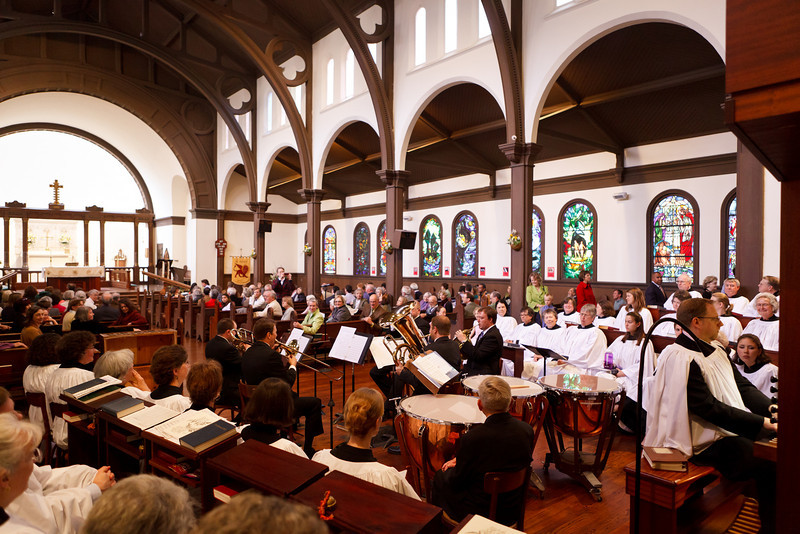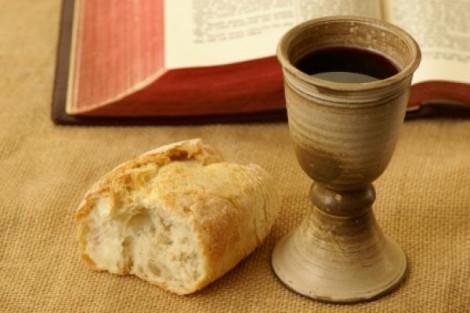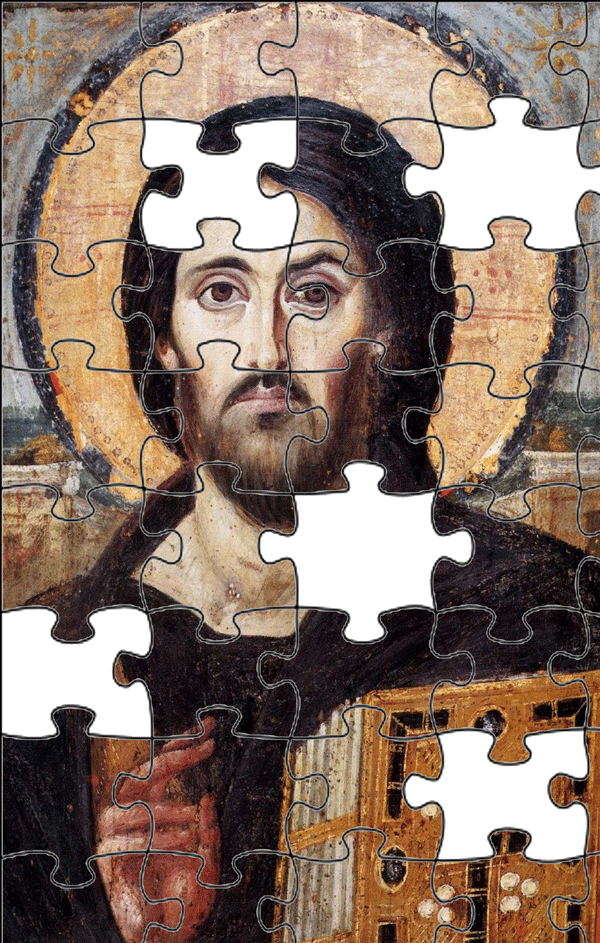On this coming Sunday, June 14, I will be confirmed into the Episcopal Church, officially leaving my Evangelical upbringing in the past. (#lettheshockwearoff…) While this may seem sudden and impulsive to some, those that truly know me well haven’t been surprised and have been completely supportive of this transition. What I’m going to attempt to do here is articulate why I made the move, and the process that God used in bringing me around to this new, beautiful chapter of my life.
First of all, let me start out by saying that I feel absolutely no ill-will toward my Baptist/Evangelical background. On the contrary, I have encountered some amazing Christian men and women who have played pivotal roles in my life and faith. I was raised by parents who love God and brought me up in His Word and directives. I came to a saving knowledge of God’s grace through Jesus Christ through my upbringing at home and guidance within the church. I will be forever grateful for my time as an Evangelical, and will always feel like I’m still a part of that tradition. It has just played too big of a role in my life to simply abandon it.
However, God has now shown me to a different way, and it couldn’t be more appropriate for me. Don’t get me wrong… when I say “different way”, I’m not talking about salvation through any means other than the shed blood of Jesus Christ and His atoning sacrifice. My traditional Evangelical beliefs and the beliefs of the Anglican Church (under which the Episcopal Church falls) are dead on, and right on point. Rather, this “different way” is a fundamental change in how I interact with God, and more importantly, how He interacts with me. So below, I’ll try to articulate the main reasons that I have come to this decision. This is just a short summary, so I’m not going to get into the theological processes I’ve been working through. Those are for other days and other posts.
Structure & Order
 One of the first things that struck me about the Episcopal Church was their use of the liturgy and the lectionary for worship. It’s very structured, very rooted in history, and in it I find great comfort. I love knowing that every other Anglican Church in the world is reading the same scriptures, studying the same topics, celebrating the same liturgical day of the year, and taking communion in the same way every week. In addition to being a great guide for personal devotions, the liturgy creates a strong sense of community, and I find rich fulfillment in knowing that we’re doing all the things, singing all the hymns, and saying all the prayers that have been tried and true by Anglicans for centuries.
One of the first things that struck me about the Episcopal Church was their use of the liturgy and the lectionary for worship. It’s very structured, very rooted in history, and in it I find great comfort. I love knowing that every other Anglican Church in the world is reading the same scriptures, studying the same topics, celebrating the same liturgical day of the year, and taking communion in the same way every week. In addition to being a great guide for personal devotions, the liturgy creates a strong sense of community, and I find rich fulfillment in knowing that we’re doing all the things, singing all the hymns, and saying all the prayers that have been tried and true by Anglicans for centuries.
I especially like the use of the liturgical calendar. I love that the liturgical seasons, by design, help keep your mind on Christ all year long, not just Christmas and Easter. The entire year is broken down in relation to Christ’s life and earthly ministry, and for someone like me who loves order, it gives deep meaning to every day and every season.
Communion
 Another aspect of the Anglican Church that really resonated with me is the importance that is placed on the Lord’s Supper. Growing up in the Baptist Church, I never really felt comfortable with the way that the Lord’s Supper was essentially treated as an afterthought. It was done once a month at the most, more often once a quarter, done during a service when it wouldn’t interfere with anything else, and just mainly tacked on at the end. I always felt that this was more important to Jesus than how we treated it. He personally and very intimately instituted this sacrament with his disciples. This fact, coupled with the importance placed on it by Paul and the early New Testament church, demands more respect and importance than many Evangelicals place on it. The intimacy and community with which the Episcopal Church approaches communion is much more along my line of thinking in terms of its importance.
Another aspect of the Anglican Church that really resonated with me is the importance that is placed on the Lord’s Supper. Growing up in the Baptist Church, I never really felt comfortable with the way that the Lord’s Supper was essentially treated as an afterthought. It was done once a month at the most, more often once a quarter, done during a service when it wouldn’t interfere with anything else, and just mainly tacked on at the end. I always felt that this was more important to Jesus than how we treated it. He personally and very intimately instituted this sacrament with his disciples. This fact, coupled with the importance placed on it by Paul and the early New Testament church, demands more respect and importance than many Evangelicals place on it. The intimacy and community with which the Episcopal Church approaches communion is much more along my line of thinking in terms of its importance.
Mystery vs. Certainty
 Let’s be honest… There’s many things about God and about His Word that just don’t make sense. I’m the type of person that generally needs everything to piece together neatly, and fit in a box that I can wrap up with a bow and call it complete. During my younger years, either ego or compulsion (or both) gave me the need to explain everything. Understand everything. Resolve apparent conflicts of theology. This drove me to do some absurd things and believe some nutty twists of theology. I’ve learned that you can take a verse out of context and make it say anything you want, and that is how I reconciled many of these things that I couldn’t understand. However, as I’ve gotten older and more keenly aware of my cerebral limitations, God has convicted me of my pride in these matters. He has taught me that there’s NO ONE that has a monopoly on the truth and NO ONE that has it all figured out. AND THAT’S REALLY VERY OKAY.
Let’s be honest… There’s many things about God and about His Word that just don’t make sense. I’m the type of person that generally needs everything to piece together neatly, and fit in a box that I can wrap up with a bow and call it complete. During my younger years, either ego or compulsion (or both) gave me the need to explain everything. Understand everything. Resolve apparent conflicts of theology. This drove me to do some absurd things and believe some nutty twists of theology. I’ve learned that you can take a verse out of context and make it say anything you want, and that is how I reconciled many of these things that I couldn’t understand. However, as I’ve gotten older and more keenly aware of my cerebral limitations, God has convicted me of my pride in these matters. He has taught me that there’s NO ONE that has a monopoly on the truth and NO ONE that has it all figured out. AND THAT’S REALLY VERY OKAY.
I have found that the Episcopal Church generally takes this approach to things, and I relate with it well. They’re okay with disagreement. They’re okay with some things of God being mystery. They’re okay with not having all the answers. It’s okay if we don’t all agree on cherry-picked ideological and political issues. We’re still part of the same family in Christ, and we can still worship together and come together at His table in communion.
Let me be clear: this in no way means that I’m abandoning my Evangelical roots or beliefs. On the contrary, they have made me what I am, and I am forever grateful for the part that tradition has played in my life. This move is just the next step for me in deepening my relationship with God and finding new depths of faith.
In conclusion, I ask for prayers from all you as I continue through this change in my life. I have no desire for any mean-spirited theological debate or judgment in regard to my decision. God’s hand has been on me every step of the way, and has guided me just as clearly as if he was actually whispering in my ear. I have finally found my spiritual home, and while that may be alarming to some, it’s literally given me new life and has elevated my faith to a place it’s never been before.
In Him – B
Recent Comments